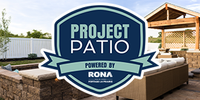Brenda Smoke lives in Dakota Plains First Nation where the historic apology was made by the City of Portage la Prairie with an actual City Council meeting held to overturn the 1911 ruling. The law required all Dakota people to be displaced from the city region. She notes she's looking to see the next step take place which involves action.
"I guess my own personal opinion is I believe when anybody does something wrong, they can actually apologize and that's it. But sometimes, saying you're sorry is not good enough for a lot of people, especially when you have a generational trauma that's been going on. Even today, we have that, and you see in the streets."
She notes many people are currently displaced from where they belong.
"It's unfortunate, but an apology sometimes doesn't do it. We've had things that the government has done and the church, but how do you say sorry for all the countless generations of people that have suffered from abuses and physical abuse, emotional abuse, mental abuse, even spiritual abuse? Long ago, we all had our culture and our tradition. Those were taken from us and we couldn't talk. We couldn't practice, and that's unfortunate because that's who we are as Indigenous people. Any nation that follows their tradition, that's who they are."
Smoke adds who's to say why somebody should just come and take that away from them. She explains she's a residential school survivor us as is her husband. She certainly notes it's definitely good for people to apologize.
"But I think we need to see more action on it than just an apology. Many people accept an apology but many people don't. When you look at the trauma all over Canada, that's going to be ongoing for generations down the road there. How do you take care of that? You can never fix it and you can never heal them. But I'm sure if you can put people in treatment centres, and have therapists. Lots of people down Main Street, they've been there for years. They need medical attention and they need a home. They need help with addictions and drugs."
She says that generational trauma from experiences like the '60s Scoop, and the residential schools. Smoke notes she thinks some people can accept an apology but some can't, noting trauma has offset people to this day. Some may never be healed and some may even die young as a result.
"Some things are being done, but children were taken against their will long ago from their parents. They didn't ask to go there. They didn't want to go there. They wanted to stay home with Mom and Dad. But unfortunately, people took it upon themselves that they knew better for us. And so they came and took children forcefully, when they had many parents missing their children, crying for their children, and never seen their children, or some of them never came home for holidays."
She asks how that can be mended and how can people get the help they require, not knowing the answers herself.
"I think a lot of people want to see more action from the government and from the churches. There is still abuses going on, not only for Indigenous people, but also in the States for non-Indigenous people and it's unfortunate. You just can't let these people that have been doing it, and 20 years down the road, just let them go from their job and that's it? They need to be punished like everybody else. When you have killers and any kind of crime, they're put in jail. So, the church just let them retire. They're saying it's okay, when it's not, unfortunately. But we continue to pray and hope our people will find things to help them to get through their trauma."
Brenda Smoke is a resident of Dakota Plains and does not represent the community council or official representation of the First Nation











